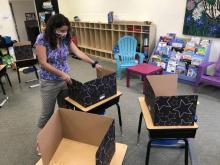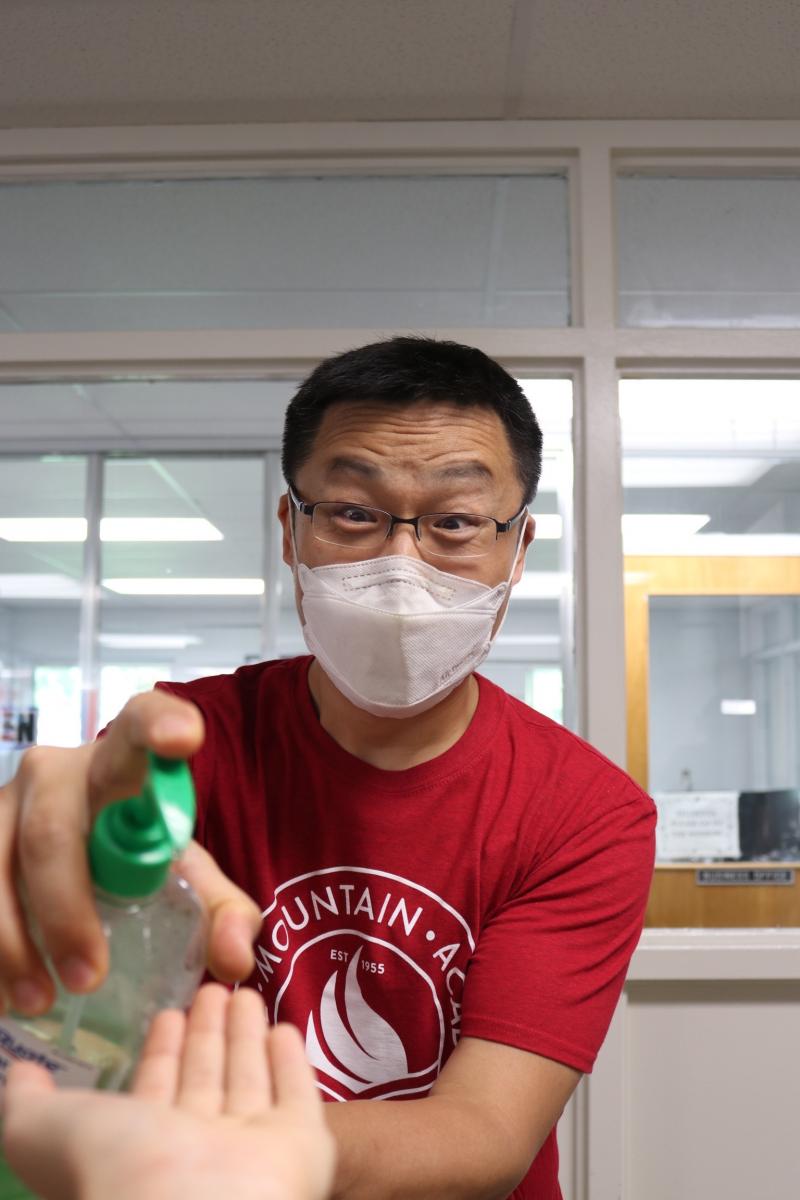 Story by V. Michelle Bernard
Story by V. Michelle Bernard
With masks on and desks set six feet (or more) apart, teachers at schools in the Columbia Union Conference are facing a school year that looks much different than years past.
Teachers are already back in their classrooms preparing for the year, which starts in the next couple weeks, for most. Some schools, like Blue Mountain Academy in Hamburg, Pa., have already started the school year with students in dormitories and distance learning from Brazil, Russia, Angola and the United States. Others are preparing to teach via distance learning only or through a hybrid of online and in-person.
Flexibility Is Key
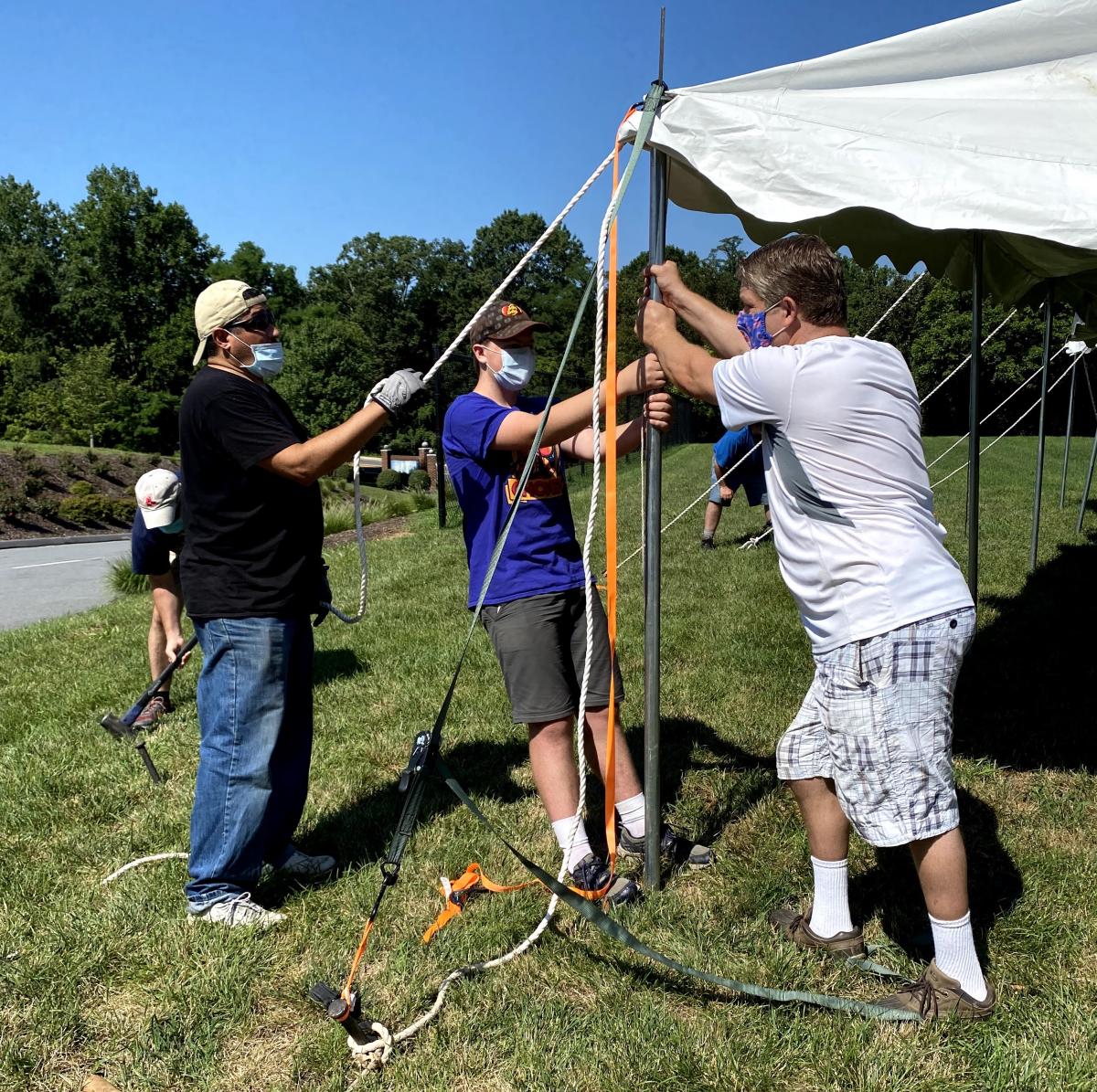 Educators across the union are following local and state recommendations and are requiring mandatory masks, installing desk sneeze guards, conducting class with alternate day schedules, social distancing rules and vigorous cleaning procedures. Many schools are also planning more activities outside, where experts say coronavirus particles disperse faster than inside. (Chesapeake Conference staff and volunteers raise a tent outside Atholton Adventist Academy for outside school activities.)
Educators across the union are following local and state recommendations and are requiring mandatory masks, installing desk sneeze guards, conducting class with alternate day schedules, social distancing rules and vigorous cleaning procedures. Many schools are also planning more activities outside, where experts say coronavirus particles disperse faster than inside. (Chesapeake Conference staff and volunteers raise a tent outside Atholton Adventist Academy for outside school activities.)
All of Allegheny East Conference’s (AEC) elementary schools will be meeting via distance learning. But the conference’s Pine Forge Academy (Pa.) will meet in person, and, in addition to new safety/health procedures, is installing an ultra-violet light system to kill pathogens.
“We always have a lot going on, but this summer has been busier due to the pandemic. We have been working through our vacation time,” says Sadrail Saint-Ulysse, superintendent of schools for the New Jersey Conference, whose schools will offer in-person and virtual options, except for the Vine Haven Adventist School, which will only meet virtually for the first quarter. “It is a very fluid situation, so our plans for schools reopening are constantly changing.”
While there are still so many unknowns about the pandemic and year ahead, most teachers know they are ready to get back in the classroom.
Their Circadian Rhythm
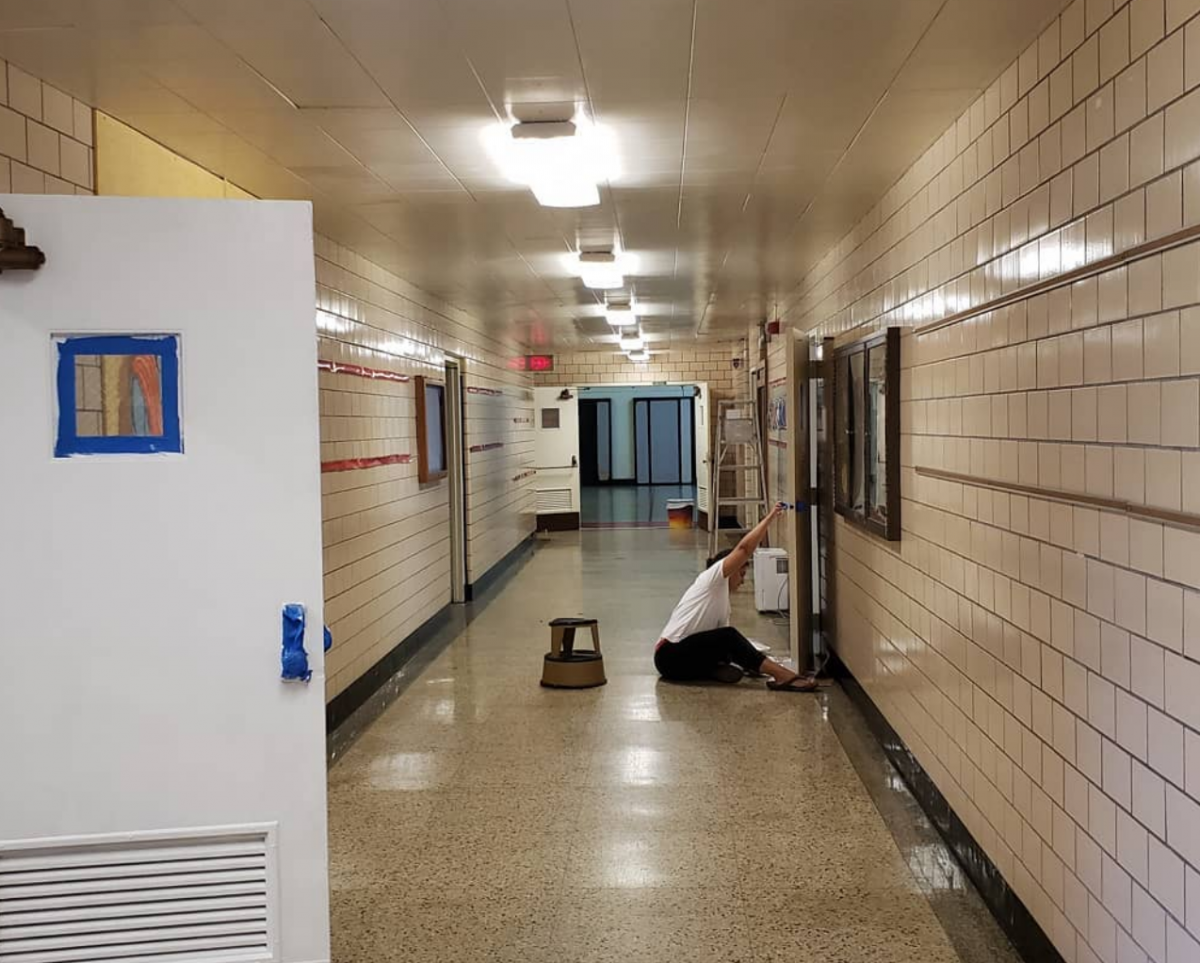 “I think there is excitement about the school year,” says Rick Bianco, superintendent of education for the Ohio Conference. “Come August, it is part of a [teacher’s] circadian rhythm.”
“I think there is excitement about the school year,” says Rick Bianco, superintendent of education for the Ohio Conference. “Come August, it is part of a [teacher’s] circadian rhythm.”
He adds that there is also some reticence about teaching in person, noting some teachers are in a vulnerable situation because of their age or health factors. “Some others just need to be in the classroom and miss being with their kids. … Others are like, ‘just let me know what the deal is, and I’ll do it.’ We have a whole spectrum.”
Most of the Ohio Conference’s schools start August 17 and will have options for learning in-person or from home. Allegheny West Conference schools offer the same option and will open September 8.
Teachers at Chesapeake Conference’s Mt. Aetna Adventist School in Hagerstown, Md., are also ready. Classes start—all in person—August 31.
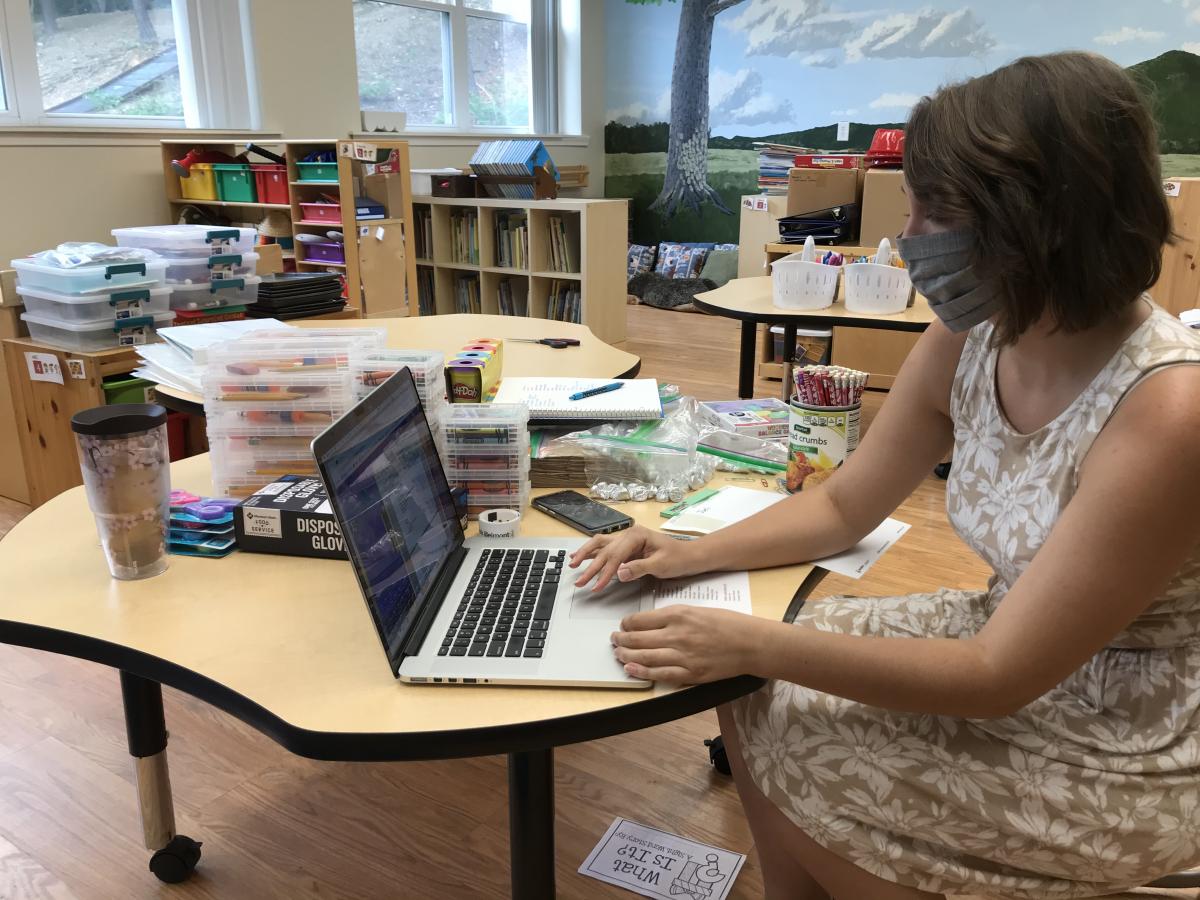 Teachers are always nervous, but this year are especially nervous because of the unknowns, says principal Roderick Kerbs, who adds that his staff is excited to be in a physical classroom again after teaching online for several months last year.
Teachers are always nervous, but this year are especially nervous because of the unknowns, says principal Roderick Kerbs, who adds that his staff is excited to be in a physical classroom again after teaching online for several months last year.
“[We were] stressed out more by the online classroom than meeting in person. Just to sit at home and do online teaching seems like a dream, but after you do it for a couple weeks, you realize you’re missing all the fun and the most rewarding parts of teaching. … Everything feels like you’re on quicksand teaching online,” adds Kerbs, saying how hard it is to see students emotionally struggling online, but knowing you’re just outside of reach to be able to do anything about it. “It’s a painful thing for teachers to do who have dedicated their whole lives to helping kids.”
School staff (Sideny Torres pictured above) is hard at work preparing their classrooms and campus and is looking forward to a 30 percent increase in enrollment because they will be open in person, in contrast to public schools in the county that have gone entirely online for the semester.
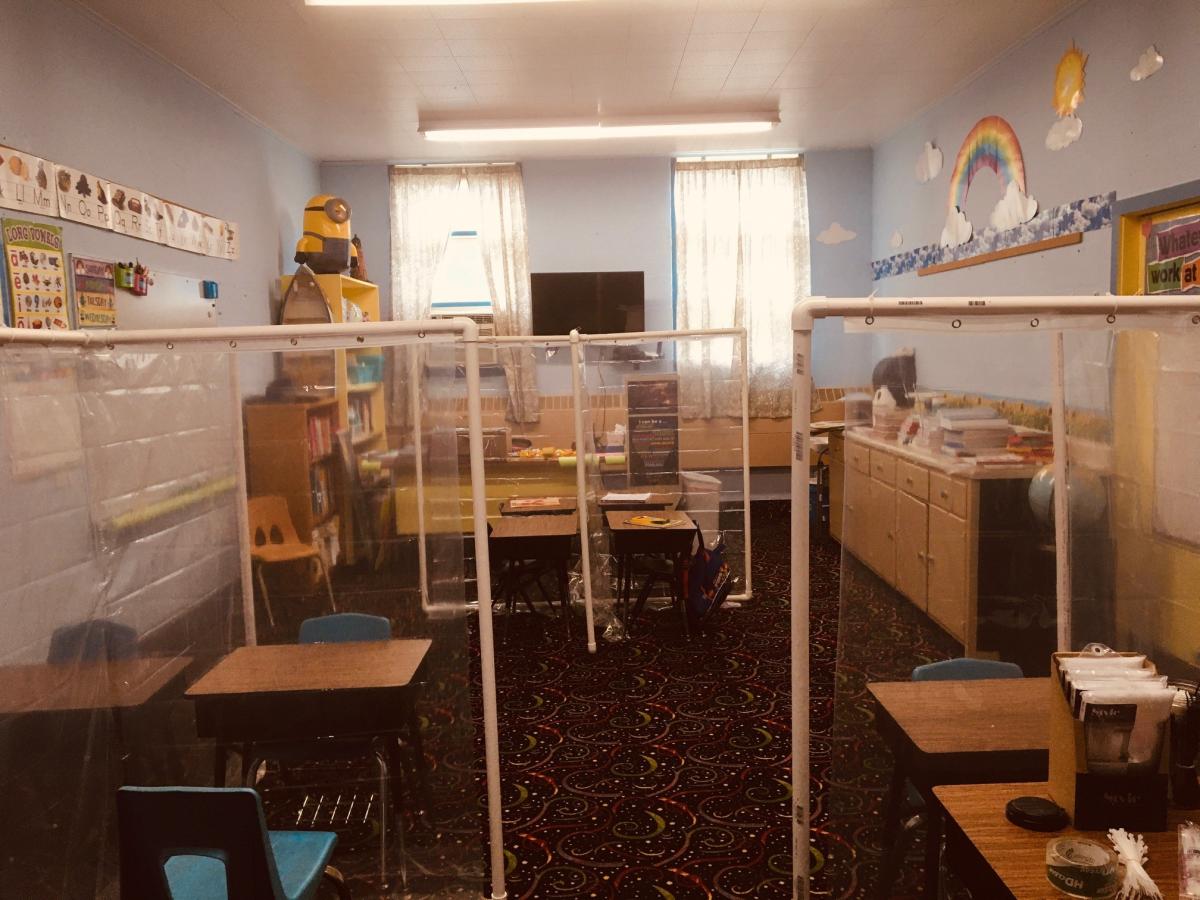 Enrollment has also increased at Pennsylvania Conference’s Mountain View Christian School (pictured left) in South Williamsport. Principal Jennifer Miller says that parents in her area “are not happy that the area public schools are only going back on campus for two days a week,” versus their school, which will be in the physical classroom five days a week.
Enrollment has also increased at Pennsylvania Conference’s Mountain View Christian School (pictured left) in South Williamsport. Principal Jennifer Miller says that parents in her area “are not happy that the area public schools are only going back on campus for two days a week,” versus their school, which will be in the physical classroom five days a week.
Passionate and Committed
All of Mountain View Conference’s schools will be starting the school year in person, with Highland Adventist School in Elkins, W.Va., also offering an online alternative. “Our teChesaachers are passionate and committed to giving our students the best education they possibly can and are hoping and praying that nothing gets in the way of that,” says Mike Hewitt, conference president and education superintendent. “Everything is so uncertain in the age of COVID-19, and it changes so fast. The government says something one day, something else the next day. … But I really feel our teachers did go above and beyond last year.”
Hewitt, who has two children at Parkersburg Academy, noted how last year his son’s teacher read stories to the class online and also spent one-on-one time reading with him, noting it was an amazing experience, “night and day superior” to what local public schools were offering.
This level of care is consistent across schools, along with the need for teachers to be flexible.
“Having the ability to move a full educational system between scenarios requires us to see every element of our profession from a very different perspective, a different angle,” says Tissiana Bowerman, head principal of Chesapeake Conference’s Spencerville Adventist Academy (Md.), which is starting school online August 17 and reevaluating how they will proceed October 16. (See more on how Spencerville and other Chesapeake Conference schools are preparing here.)
“Chesapeake Conference teachers always provide high-quality education to our students. Now we are asking ourselves what it means to provide a high-quality education in an online environment,” says Bowerman, whose school also installed iWave air purifying devices to destroy viruses, bacteria and mold. “Teachers have been studying best practices for online education, redefining schedules, learning new software programs and thinking outside the box for ways to establish relationships and growing a community. Our schools are expanding technological abilities, while sharing ideas and resources. It is exciting to see how our teachers are pulling together to respond to a crisis with professionalism and strength.”
Related Articles
- Berean Church Featured on MSNBC for Food Pantry
- Southeast Member Encourages Others During Pandemic
- Chesapeake Shools Preparing for Reopening
- Serving the Community During Challenging Times
- Washington Adventist University Shifts to Virtual Education

